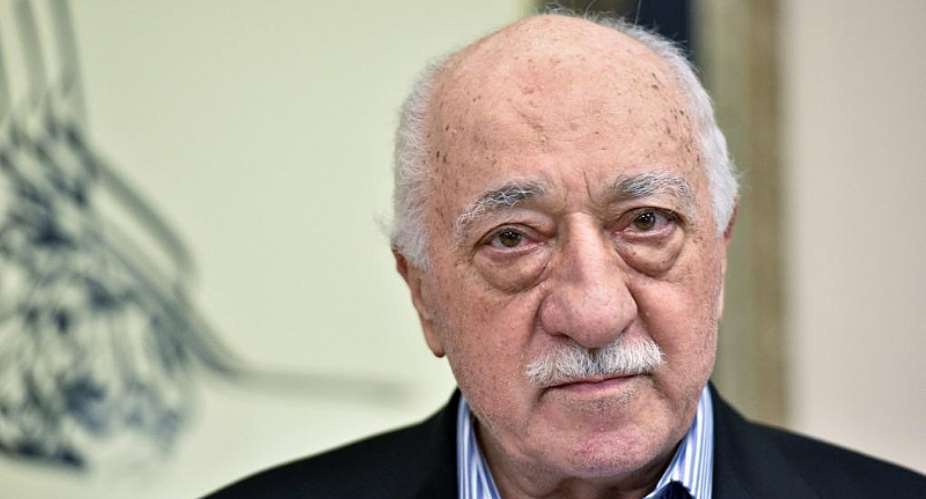Turkish authorities have detained at least 729 people in nationwide raids over alleged links to a group blamed for a failed 2016 coup. The public prosecutor's office of Ankara said it was seeking some 1,100 people across the country suspected of having ties to US-based cleric Fethullah Gulen.
Forty-five of those arrested were in the capital Ankara, a judicial source, who did not wish to be named, told AFP.
Turkish officials defended the crackdown by pointing to what they describe as the Gulen group's "virus-like" infiltration of key institutions, including the police.
Members of the movement are accused of cheating on entry exams to gain access to important public bodies.
Turkish Interior Minister Suleyman Soylu had said Sunday that authorities "were planning a big operation" against the movement.
"Devils wouldn't even conduct the tricks that they did," Soylu said, adding that Turkey would "finish them off in this country".
There have been regular raids across Turkey in recent weeks against alleged members of the movement, despite criticism from human rights defenders and Ankara's Western allies over the scale of the crackdown.
Gulen, whose movement “Hizmet” or “Service” is described by Turkey as the “Fethullahist Terrorist Organisation (FETO)”, is accused of ordering an attempted putsch in 2016, a claim he strongly denies.
The Gulen movement describes itself as a “faith-based non-political, cultural and educational movement” that is “composed of a cluster of religious, educational and social organisations”, inspired by Fethullah Gulen himself.
Suspicion
Initially the Gülen movement, cooperated with the AKP, the party of President Recep Tayyip Erdogan.
But in 2013, the AKP and the Gulen movement grew apart. The Erdogan government began to round up members of the military, judiciary, press and academia whom it accused of having “links with” the Gulen movement, expressing suspicion that it was trying to grab power by placing its members in high positions.
The movement, which operates a global network of educational institutions, was also attacked abroad, with Turks living overseas being advised to take their children out of schools.
The government increased its already massive crackdown against suspected Gulen supporters after a coup attempt on 15 July, 2016, led by a faction of dissatisfied officers, saying the coup was orchestrated by the cleric himself.
Tens of thousands of people have been taken into custody over suspected links to Gulen since 2016 while over 100,000 have been sacked or suspended from the public sector.
Turkish Justice Minister Abdulhamit Gul said last month that 31,088 people have been convicted or jailed over suspected Gulen links.
Last month, 192 people were arrested over suspected relations with the group.
The Ankara chief prosecutor's office then ordered the arrest of 50 military suspects and another 55 people accused of using the ByLock messaging app.
Turkey had banned ByLock in the aftermath of the failed putsch, saying followers of Gulen used it to communicate on the night of the coup.





 Elisu By-election: "If you call yourself a man, boo Chairman Wontumi again" — Bo...
Elisu By-election: "If you call yourself a man, boo Chairman Wontumi again" — Bo...
 Fuel tanker driver escapes with his life after tanker goes up in flames near Suh...
Fuel tanker driver escapes with his life after tanker goes up in flames near Suh...
 Uniform change: ‘Blue and white are brighter colours’ — Kwasi Kwarteng explains ...
Uniform change: ‘Blue and white are brighter colours’ — Kwasi Kwarteng explains ...
 MoE not changing all public basic school uniforms but only newly built ones — Kw...
MoE not changing all public basic school uniforms but only newly built ones — Kw...
 We’re only painting new public basic schools blue and white – Dr. Adutwum clarif...
We’re only painting new public basic schools blue and white – Dr. Adutwum clarif...
 Bawumia has lost confidence in his own govt’s economic credentials – Beatrice An...
Bawumia has lost confidence in his own govt’s economic credentials – Beatrice An...
 I fought WW2 at age 16 – WO1 Hammond shares At Memoir Launch
I fought WW2 at age 16 – WO1 Hammond shares At Memoir Launch
 GRA-SML deal: Regardless of what benefits have been accrued, the contract was aw...
GRA-SML deal: Regardless of what benefits have been accrued, the contract was aw...
 April 26: Cedi sells at GHS13.75 to $1, GHS13.18 on BoG interbank
April 26: Cedi sells at GHS13.75 to $1, GHS13.18 on BoG interbank
 Champion, promote the interest of women if you become Vice President – Prof. Gya...
Champion, promote the interest of women if you become Vice President – Prof. Gya...
